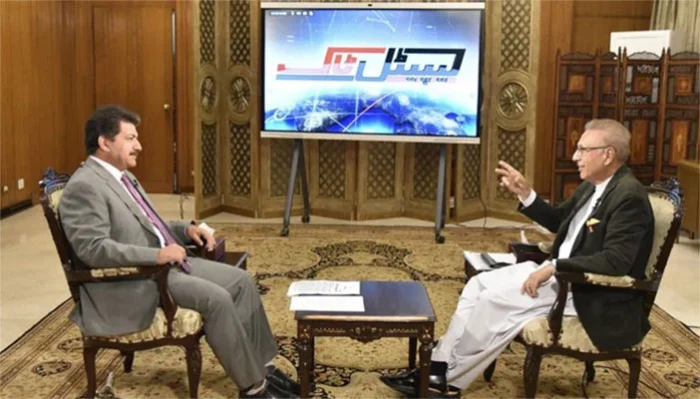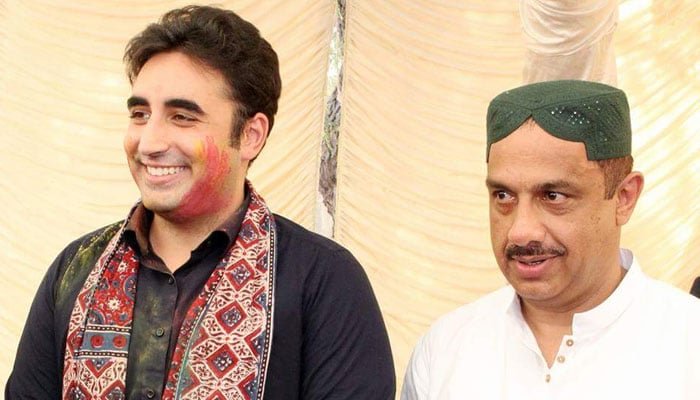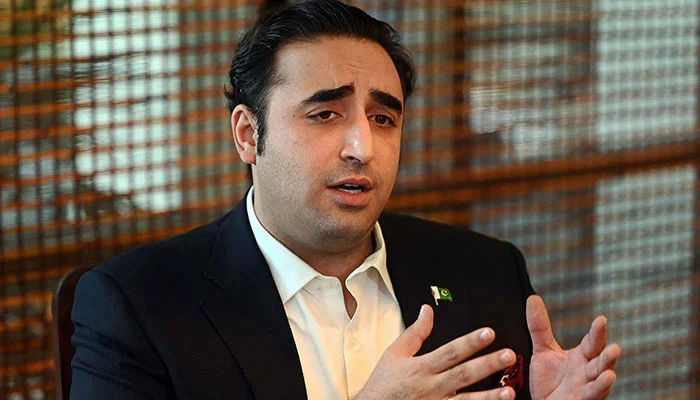In a recent interview on Geo News’ program ‘Capital Talk,’ President of Pakistan, Dr. Arif Alvi, made several significant statements regarding the country’s political landscape. One of the key revelations was his assertion that he did not send a reference against Chief Justice Qazi Faez Isa but that it had originated from the Prime Minister’s House.
Dr. Arif Alvi further disclosed that the former Prime Minister had also expressed reluctance about sending the reference, raising questions about who had actually initiated the process. This revelation sheds light on the internal dynamics of political decisions in Pakistan.
President Alvi also addressed the recent speech by former Prime Minister Nawaz Sharif at Minar-e-Pakistan, where Sharif had called on the people to unite. Dr. Arif Alvi commended this call for unity and stated that the public’s support of Sharif’s statement in the next day’s surveys fulfilled their expectations. It’s noteworthy that Nawaz Sharif’s speeches have been the subject of public attention, and his words often carry considerable weight in Pakistani politics.
The President also praised the Pakistan Peoples Party (PPP) and credited Zulfikar Ali Bhutto, the party’s founder, with significantly altering the political landscape. Bhutto’s tenure was marked by changes in governance, advocacy for women’s rights, and the iconic slogan “Pakistan Khappe,” according to President Arif Alvi.
Why tears came out from the eyes of President @ArifAlvi when I asked him a question about the situation in #Gaza ? Why President is not sure about elections in the last week of January? Watch exclusive interview of the President on @geonews_urdu at 8 pm tonight pic.twitter.com/ajkCaNacqV
— Hamid Mir حامد میر (@HamidMirPAK) October 25, 2023
Regarding the 2017 Election Act, President Arif Alvi criticized Section 57, stating that if he had been in the Presidential office and not on Hajj pilgrimage, he would not have signed the amendment to the Act. His remarks reflect concerns about the fairness and transparency of elections and the need for electoral reform.
President Alvi expressed skepticism about holding elections at the end of January, noting that the constitution allows the incumbent President to continue his duties until the newly elected President takes office. He underscored the challenges facing Pakistan’s democratic system and the possibility that the government might not complete its term.
The President also discussed issues related to election preparations in Punjab and Khyber Pakhtunkhwa, where election commissioners’ appointments had caused disputes. His statement highlights the ongoing challenges in the electoral process and the need for addressing such issues. President Arif Alvi’s statements provide insight into Pakistan’s current political climate, raising questions about the initiation of legal proceedings and expressing concerns about the electoral process. These remarks shed light on the complexities of Pakistan’s political landscape and the challenges facing its democratic system.



